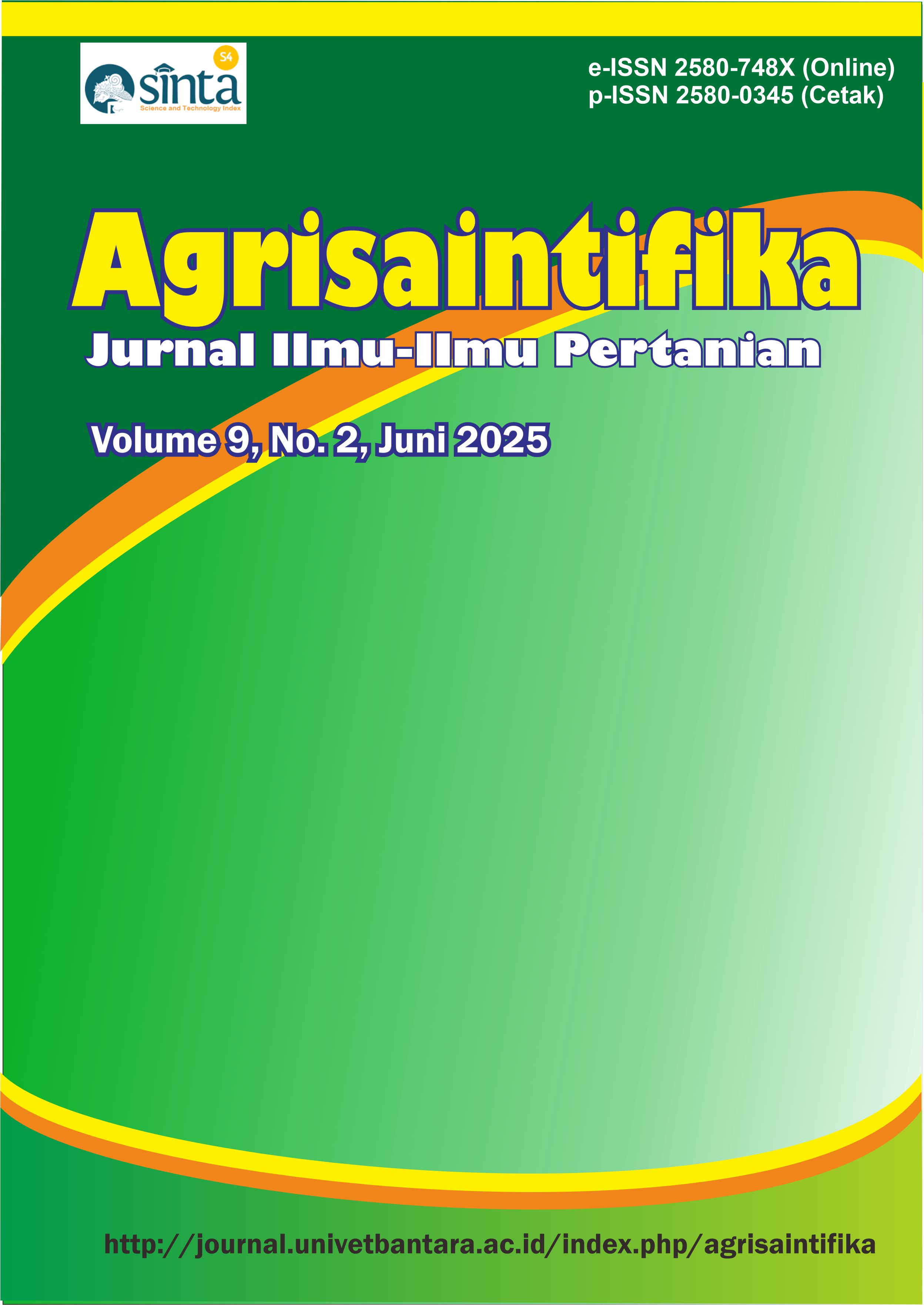TEST OF MUSHROOMS BAGLOG WASTE RESIDUE AND BIOCHAR COMPOST ON SOIL CHEMICAL PROPERTIES AND GROWTH OF PAKCOY (Brassica rapa L.)
DOI:
https://doi.org/10.32585/ags.v9i2.5985Abstract
This research aims to determine the effect of baglog waste residue and biochar compost on soil chemical properties and the growth of pak choy (Brasicca rapa L.). The pot experiment used a Completely Randomized Design (CRD) with a 4x4 factorial pattern with 3 replications. Variables observed in the research included plant height, number of leaves, root length, plant fresh weight, root fresh weight, soil pH, CEC, K, Ca and Mg. number of leaves, root length, plant fresh weight, root fresh weight, soil pH, CEC, K, Ca and Mg. Observation data were tabulated and analyzed using analysis of variance (Anova) in a completely randomized design. Next, it was tested further using the Duncan Multiple Range Test (DMRT) with a significance level of 5%. The soil chemical parameters analyzed are: Potassium (Bray I Method), Calcium and Magnesium (MSS), Cation Exchange Capacity (Distillation, Ammonium acetate at pH 7), soil pH (with a pH meter). The results of the research showed that the treatment of L2 mushroom baglog waste (50% soil: 50% baglog waste) and B2 biochar compost (50% biochar compost: 50% soil) could improve soil chemical properties such as soil pH, CEC, K, Ca, Mg and growth. Pakcoy.
Downloads
Downloads
Published
How to Cite
Issue
Section
License
Copyright (c) 2025 Deseriana Bria, Valentina Usolin, Hyldegardis Naisali, Natalia Desy Djata Ndua, Magdalena Sunarty Pareira

This work is licensed under a Creative Commons Attribution-ShareAlike 4.0 International License.







